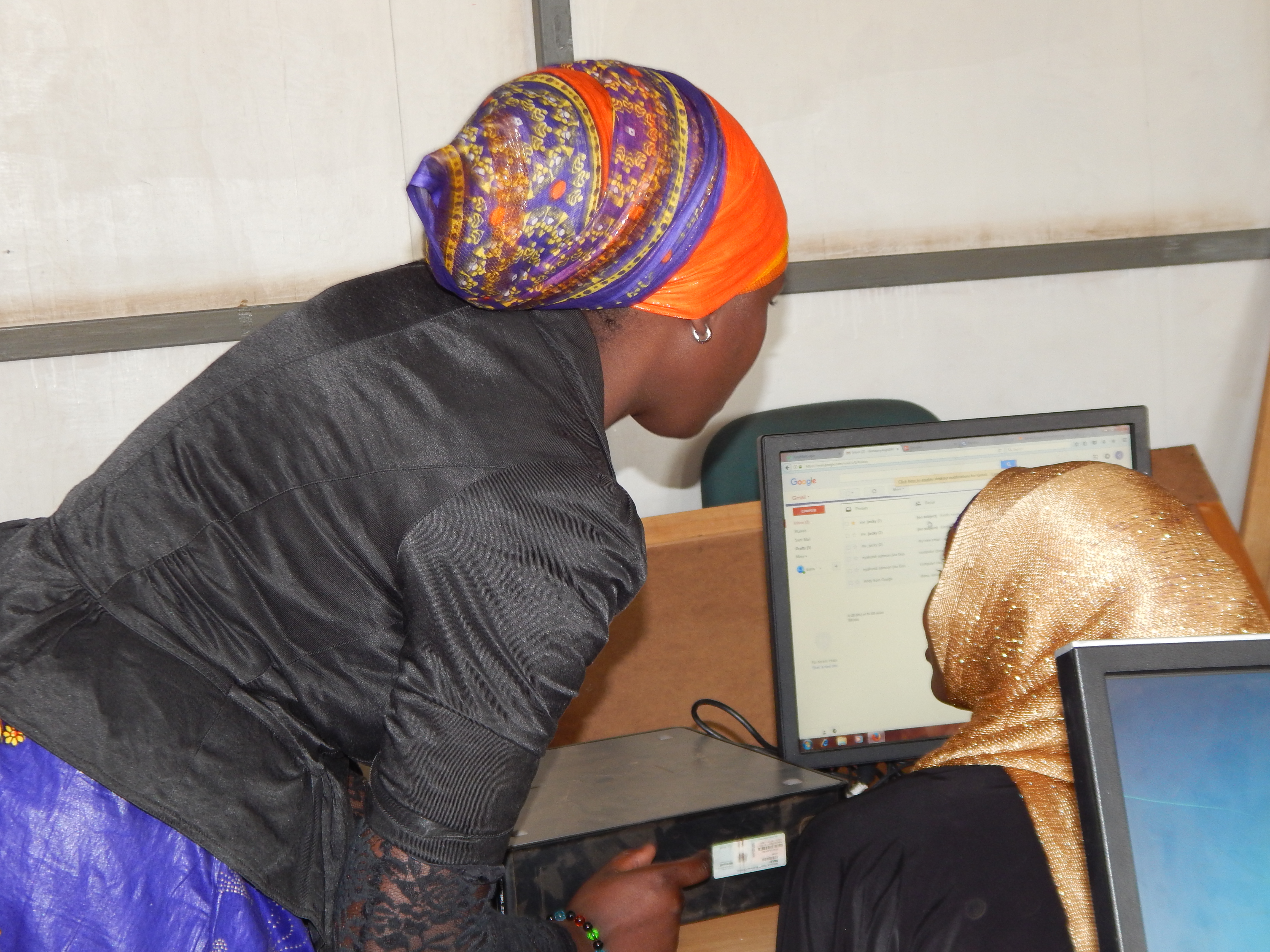By Lilian Kaivilu |
A dusty and rough road leads to Kibera informal settlements in Kenya’s capital-Nairobi. Residents here are seemingly busy, braving the day’s heat and dust to put food on the table.
In most informal settlements, crime, congestion, poor sanitation and poverty are often used as the best descriptions of life therein. Congestion is perceived as the real picture in the slums. Many perceive the informal settlements, just like Kibera, as the source of cheap labour for the city industries.
But on this particular afternoon, CIPESA-ICT4Democracy in East Africa Media Fellow, Lilian Kaivilu, discovers another side of Kibera; a beautiful, tidy, organized and developed face of Kibera that few people know about. Let us call it ‘The Other Kibera’. Here, the use of Information Communication Technology (ICT) is rife. One would be forgiven to believe that he or she is actually in the middle of the city.
About one and half kilometres down the rough road is a building housing the Human Needs Project. Although it appears like an ordinary business centre from the outside, the scope of transformation is enormous.
The two-storey building is located in Katwekera, the heart of Kibera, just next to the railway line. On the first floor, Jackline Oyugi takes students through ICT lessons. The ambience in the classroom is to be admired.

“Everyone, please log into your email. And if you do not have an email yet, log into www.gmail.com and wait for me,” Oyugi instructs the students who are just settling in for the afternoon session. This is part of the group of students in the Basic ICT class. “So far we have had over 1,500 students undergo the Basic ICT class. They are all from Kibera,” says Oyugi.

At the Kibera centre, locals can access such ICT services as Kenya Revenue Authority (KRA) pin application, printing, browsing and photocopy services.
The centre also offers an Advanced ICT course for students who graduate from the Basic ICT class. So far, 604 students have undertaken this advanced course.
Out of all the graduates from the ICT training at the Human Needs Project, 370 of them are attached to Business Process Outsourcing (BPO) companies across the country. “We have seen great impact in this programme. Today, one of our graduates is earning Sh45,000 (USD 450) , just from the knowledge gained here,” Oyugi points out.
Besides being an ICT centre with a training school and a cyber café, the building also hosts a number of other facilities that make life a whole different in the slum. One of such facilities is a laundry. Anold Omondi, 26, is a beneficiary of the Kibera Human Needs Project. “Being idle is my greatest enemy. And this is what this project has helped me deal with,” says Omondi.
He is employed at the laundry where he reports every day at 8:30am. Omondi joined the laundry in 2016. “I now feel more responsible and I am able to handle most of my financial needs comfortably,” he says.
At the laundry, locals enjoy dry cleaning services from Sh250 (USD 2.50).
On the ground floor are a set of bathrooms and toilets; for men and women, a cafeteria and a shop that sells only eco-friendly products.
For those locals who have a laptop or would want to access internet in the middle of the slum, this is the place. At Sh50 (USD 0.50) per day, locals can get access to the cyber café if they are using their own laptop. A table is set aside for this purpose. For those who need some privacy while working, there is a corner preserved for them too.
And for the job seekers, the Information Centre here relays the much needed information on which companies are hiring. At the information centre, locals walk in and out to check on vacancies or even deliver vacancies. This, according to Oyugi, makes it easier to link employers with job seekers.
Lilian Kaivilu is a 2017 CIPESA-ICT4Democracy in East Africa Media Fellow. She is engaged in documenting ICT solutions for education, maternal care, women’s rights and local governance in Kenya.



